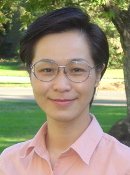 Graduate students Chong Cao and Joe Oncken work with researcher Bo Chen (CPS/ME-EM) in the Intelligent Mechatronics and Embedded Systems lab. In the lab, they develop Simulink models for smart city technology — and show how the models shift into real-life testing.
Graduate students Chong Cao and Joe Oncken work with researcher Bo Chen (CPS/ME-EM) in the Intelligent Mechatronics and Embedded Systems lab. In the lab, they develop Simulink models for smart city technology — and show how the models shift into real-life testing.
“We develop and validate the controls in our process using a simulation first,” Cao explained, to which Oncken added: “Simulink is just an on-computer simulation software that’s all visual — you put building blocks together — and make an entire model of an electric car, the electrical grid.”
Bo Chen is the Dave House Professor of Mechanical Engineering and Electrical Engineering. Joe Oncken is PhD Graduate Research Assistant in the Department of Mechanical Engineering – Engineering Mechanics; Chong Cao is a PhD Graduate Research Assistant in the Department of Electrical and Computer Engineering.
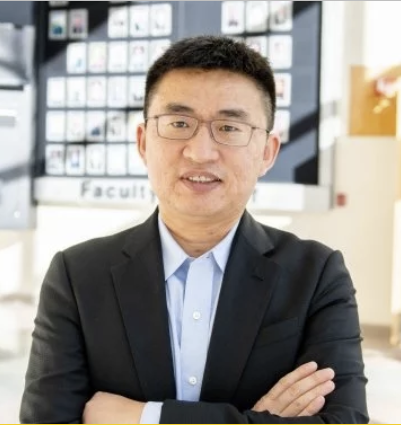 Research by Kuilin Zhang (CS) was featured in the story “MTU Researchers develop optimization model to fill in the gaps in connected vehicle data in the April 26, 2019, issue of Green Car Congress. View the article here:
Research by Kuilin Zhang (CS) was featured in the story “MTU Researchers develop optimization model to fill in the gaps in connected vehicle data in the April 26, 2019, issue of Green Car Congress. View the article here: 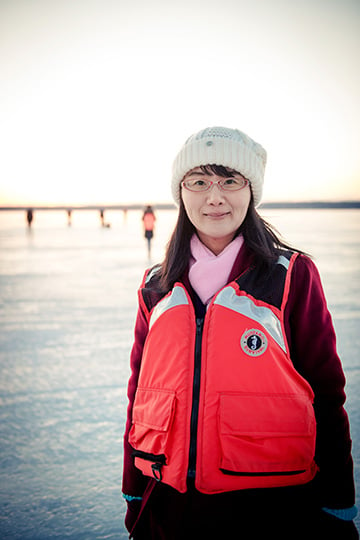 By Karen Johnson, ICC Communications Director
By Karen Johnson, ICC Communications Director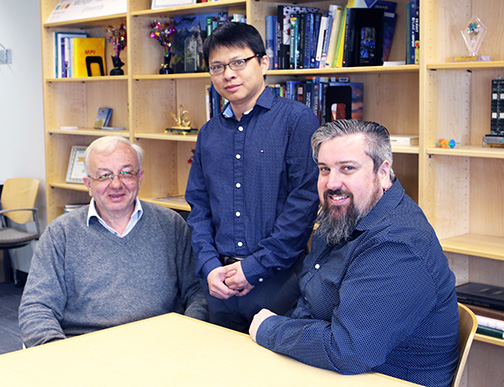 At the annual awards banquet of the Michigan Tech Institute of Computing and Cybersysytems (ICC), on Friday, April 12, three ICC members received the ICC Achievement Award in recognition of their exceptional contributions to research and learning in the fields of computing.
At the annual awards banquet of the Michigan Tech Institute of Computing and Cybersysytems (ICC), on Friday, April 12, three ICC members received the ICC Achievement Award in recognition of their exceptional contributions to research and learning in the fields of computing.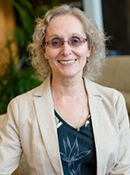
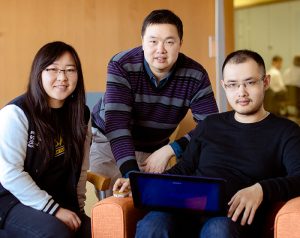
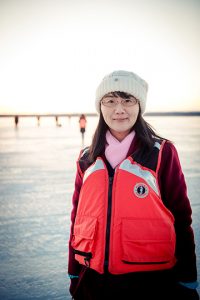
 CPS Center Director, Shiyan Hu and collaborators, published a keynote paper in IEEE Transactions on CAD, entitled,
CPS Center Director, Shiyan Hu and collaborators, published a keynote paper in IEEE Transactions on CAD, entitled,